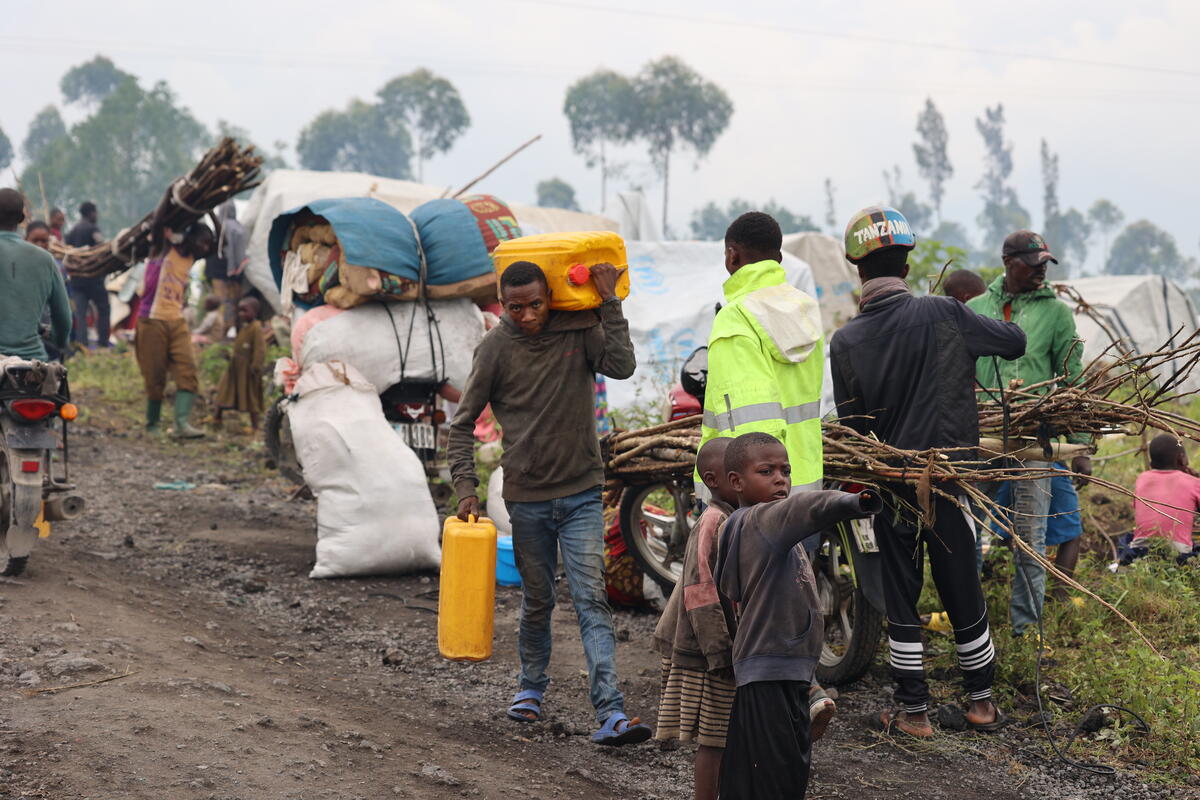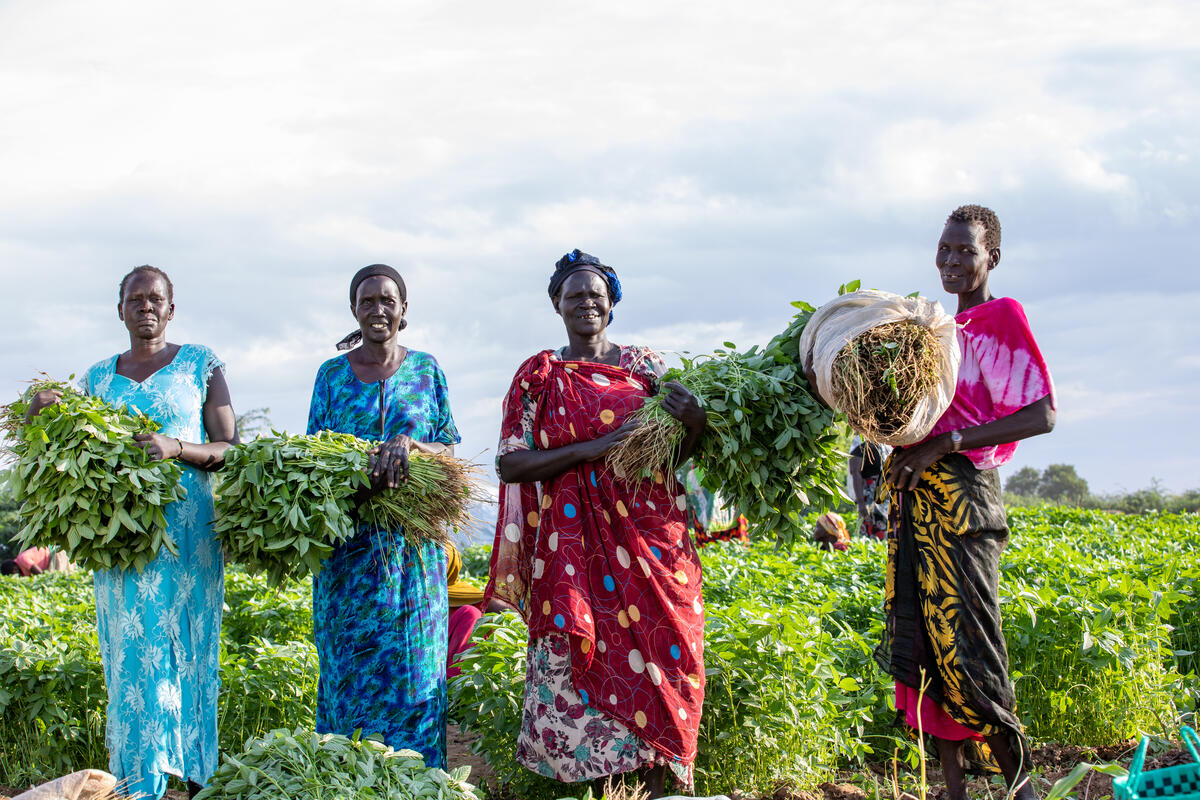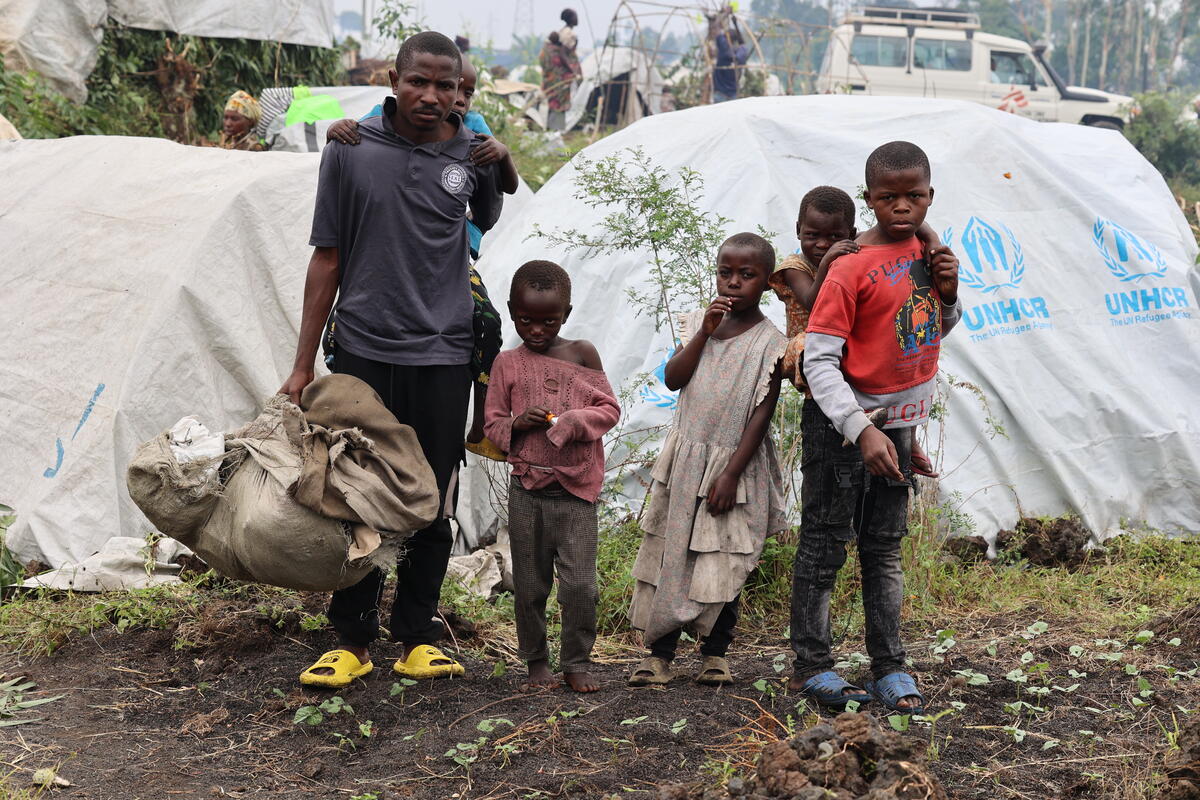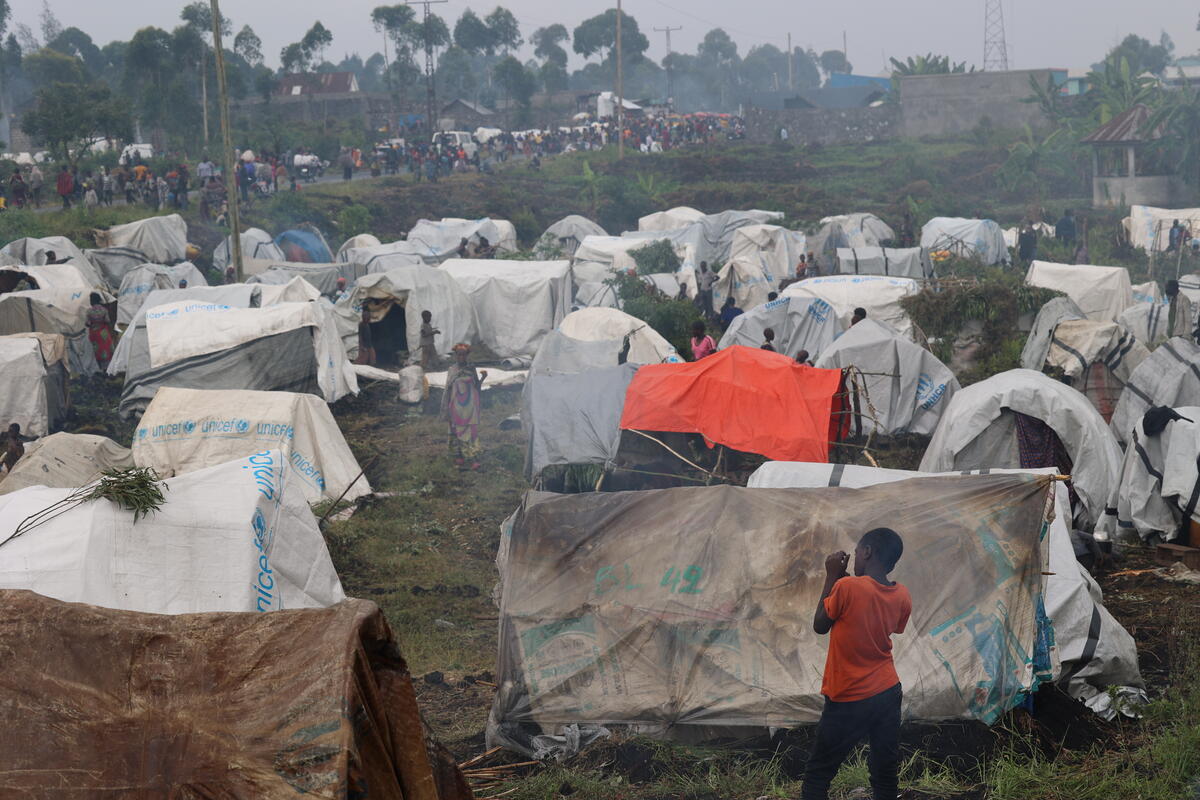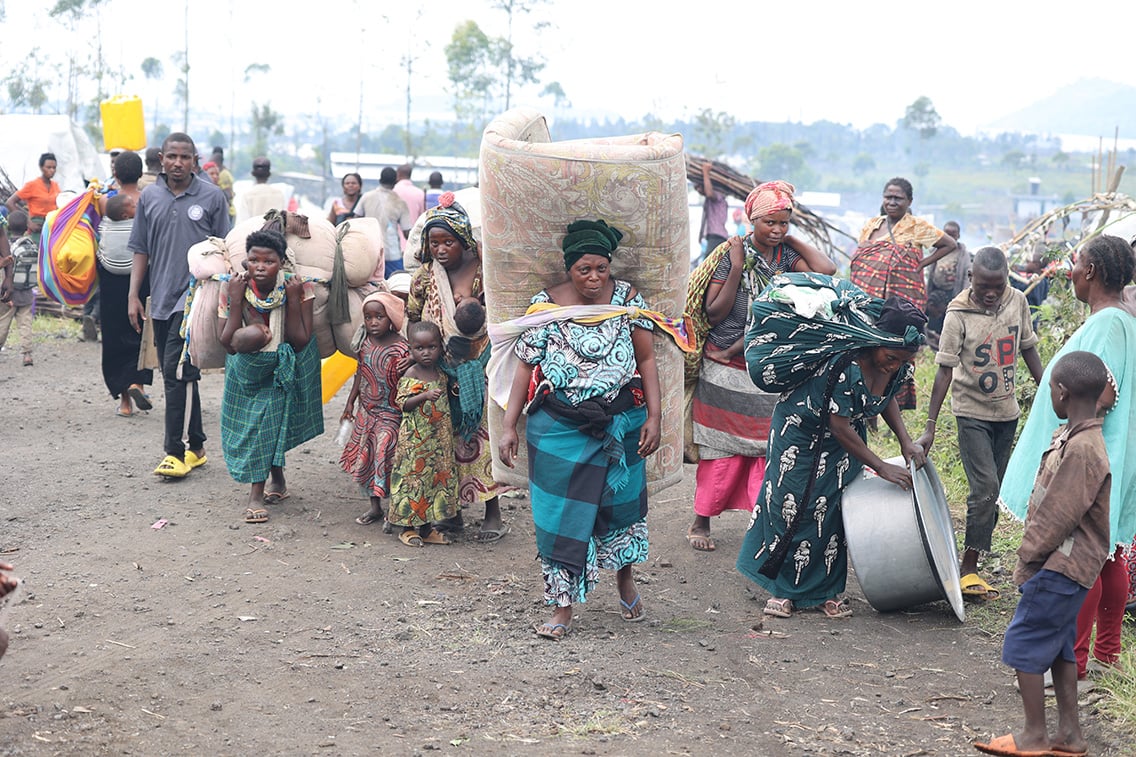DRC: Over 1,000 have returned from Republic of Congo
DRC: Over 1,000 have returned from Republic of Congo
More than 1,000 Congolese have now returned to their homes in the Equateur Province of the Democratic Republic of the Congo (DRC) in one of UNHCR's most unusual - and logistically challenging - voluntary repatriations ever. Because of the lack of roads in the region, these return convoys travel by boat along the Oubangui River. Today our 10th convoy since the operation started on 27 April moved 109 people to the Libenge area of Equateur Province in north-west DRC, bringing to 1,076 the number of refugees to return with our assistance from their asylum in the neighbouring Republic of Congo (ROC). The refugees fled fighting between two Congolese rebel groups in 2000 and have been living peacefully in ROC since then. Altogether, some 58,000 DRC refugees are expected to return between now and the end of 2006. In addition to the riverboat portion, the rugged return journey includes crossing dense rain forest, numerous waterways and extremely rough roads. And the final leg home sometimes involves walking.
Because of safety concerns, we are limiting the number of passengers on each boat to 50, so each return convoy is small. The long, narrow boats carry passengers - underneath a wooden ceiling sheltering them from sun and rain - on rows of seats along the sides, facing each other. The returnees all wear life jackets for the journey of up to two or three hours along the river. So far we have not encountered any problems. Before war disrupted life in DRC, many of these people were accustomed to travelling to the capital, Kinshasa, by boat. For the repatriation convoys, their possessions are carried in a separate boat.
Refugees are given a medical exam the day before boarding the boats, to make sure they are strong enough for the journey. Once the returnees reach the DRC side, they are given a three-month supply of food, kitchen implements and a shelter kit to construct a house to help them resume their lives back home. When possible, trucks are used to transport the returnees to their final destinations.
Unlike traditional refugee situations where refugees live in camps, the 16,000 refugees in the Betou area of north-east ROC (1,040 km north-east of the capital, Brazzaville), live among the local population, supporting themselves by fishing, farming and foraging in the dense tropical forests. They are spread out in 39 sites along a 160-kilometre stretch of riverbank, which has made organizing their return challenging. Once refugees have registered for convoys home, we have to go out in boats and collect them from their villages of refuge and bring them to a transit centre before they can even begin the journey home.
In DRC, a country more often in the news because of what has been called one of the world's most overlooked wars, this is an important vote of confidence by the refugees themselves who recognize that Equateur Province, in the north-west of the country, is an enclave of peace and stability.


